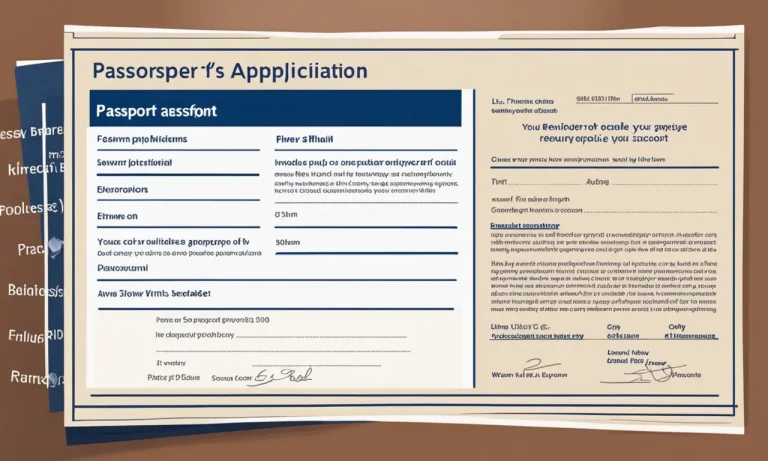Is attending school mandatory for children in the United States? This is a common question many parents have as their children reach school age. The quick answer is yes, children in the U.S. are required by law to attend school.
However, the details surrounding compulsory education laws vary quite a bit from state to state. In this comprehensive guide, we will examine the history of mandatory schooling, reasons for its establishment, and break down the specifics of compulsory education requirements throughout the country.
Mandatory education laws first arose during the 19th century as part of the common school movement. Reformers believed that mass public education was necessary to create good citizens, unite society, and prevent crime and poverty.
Over time, compulsory attendance became the norm throughout the U.S., with all 50 states currently requiring school attendance.
View this post on Instagram
History of Compulsory Education Laws in the U.S.
Rise of Common Schools in the 1800s
In the 1800s, the concept of compulsory education began to take hold in the United States. This was a time when the country was undergoing significant social and economic changes, and education was seen as a way to promote social mobility and create a more educated citizenry.
The rise of common schools, which were publicly funded and open to all children, played a crucial role in setting the stage for compulsory education laws.
Compulsory Attendance Spreads State-by-State
As the 19th century progressed, states began to enact compulsory attendance laws, making it mandatory for children to attend school for a certain number of years. The first state to pass such a law was Massachusetts in 1852, followed by other states like Connecticut, New York, and Michigan.
By the early 20th century, compulsory education laws had been adopted by all states, ensuring that children received a basic education.
Key Court Cases Upholding Compulsory Education
Throughout the history of compulsory education in the U.S., there have been several key court cases that have upheld the constitutionality of these laws. One such case is the landmark decision in 1925, Pierce v. Society of Sisters, where the U.S. Supreme Court held that parents have the right to choose private or religious schools for their children, but the state can still require a minimum level of education.
Another important case is Wisconsin v. Yoder in 1972, where the Supreme Court recognized the rights of parents to provide alternative forms of education, such as homeschooling, but still upheld the state’s interest in ensuring education for all children.
Reasons for Compulsory Education
In the United States, compulsory education laws require children to attend school for a certain number of years. These laws are in place for several important reasons, ensuring that all children have access to education and are prepared for their future roles in society.
Preparing Children for Citizenship and Society
One of the primary reasons for compulsory education is to prepare children for their roles as citizens in society. Education plays a crucial role in shaping young minds, teaching them about democratic values, civic responsibilities, and the importance of active participation in their communities.
By attending school, children learn about their rights and responsibilities as citizens, helping them become informed and engaged members of society.
View this post on Instagram
Providing All Children Access to Education
Compulsory education laws also ensure that all children, regardless of their background or socio-economic status, have access to education. Education is a fundamental human right, and these laws strive to eliminate barriers that may prevent children from receiving a quality education.
By making school attendance mandatory, the government aims to provide equal opportunities for all children, giving them the chance to acquire knowledge and skills that will benefit them throughout their lives.
Keeping Kids Safe and Out of the Workforce
Another important reason for compulsory education is to protect children from exploitation and ensure their safety. By requiring children to attend school, it helps prevent them from entering the workforce at a young age, where they may be subjected to dangerous or exploitative conditions.
Education serves as a protective shield, allowing children to develop physically, emotionally, and intellectually in a safe environment.
Teaching Basic Skills
Compulsory education laws also emphasize the importance of teaching basic skills to children. These skills include literacy, numeracy, critical thinking, problem-solving, and communication, which are essential for success in both personal and professional life.
By mandating school attendance, children are given the opportunity to acquire these foundational skills, which will serve as building blocks for their future education and career prospects.
Overview of Current Compulsory Education Laws
Compulsory education laws in the United States ensure that all children receive an education, aiming to provide them with the necessary skills and knowledge for a successful future. These laws require children to attend school for a specific number of years or until they reach a certain age.
Ages and Grade Levels
The exact age at which compulsory education begins and ends can vary from state to state. In most states, children are required to start school by the age of six and continue until they reach 18 years old.
However, some states may have different age requirements, so it is important to check the specific laws in your area.
Compulsory education typically covers a range of grade levels, usually from kindergarten through 12th grade. This ensures that children receive a comprehensive education that prepares them for higher education or the workforce.
Homeschooling and Alternatives
While attending traditional public or private schools is the most common way to comply with compulsory education laws, there are alternative options available. One popular alternative is homeschooling, where parents take on the responsibility of educating their children at home.
Homeschooling provides flexibility and the ability to tailor the curriculum to the child’s specific needs and interests. Many families choose this option for various reasons, such as religious beliefs, dissatisfaction with the public school system, or the desire for a more personalized education.
It’s important to note that homeschooling laws vary by state, so parents considering this option should research and comply with their state’s regulations to ensure they meet the requirements.
Accommodations for Special Needs
Compulsory education laws also take into account students with special needs. Federal laws, such as the Individuals with Disabilities Education Act (IDEA), provide protections and accommodations to ensure that children with disabilities receive an appropriate education.
View this post on Instagram
Public schools are required to provide individualized education plans (IEPs) for students with special needs, outlining the specific accommodations and services they require. These accommodations may include specialized instruction, assistive technology, or additional support from special education teachers.
Parents of children with special needs should work closely with their child’s school to create an effective learning plan that meets their unique needs.
State-by-State Compulsory Education Requirements
Alabama
In Alabama, education is compulsory for children between the ages of 6 and 17. This means that parents or guardians are legally obligated to ensure that their children receive an education during these years.
The state provides both public and private schooling options, as well as homeschooling alternatives.
Alaska
In Alaska, the compulsory education age ranges from 7 to 16. Parents or guardians are responsible for ensuring that their child attends a school or an educational program approved by the state. However, Alaska also allows for homeschooling as an alternative to traditional schooling.
Arizona
Arizona has compulsory education laws that require children between the ages of 6 and 16 to attend school. The state offers various schooling options, including public, private, and charter schools. Homeschooling is also permitted, but parents must follow specific guidelines set by the state.
Arkansas
In Arkansas, education is compulsory for children between the ages of 5 and 17. The state provides both public and private schooling options, as well as homeschooling alternatives. Parents or guardians are responsible for ensuring that their child receives an education that meets state standards.
California
California has compulsory education laws that require children between the ages of 6 and 18 to attend school. The state offers various schooling options, including public, private, and charter schools. Homeschooling is also permitted, but parents must follow specific guidelines set by the state.
These are just a few examples of the compulsory education requirements in some states. Each state has its own specific laws and regulations regarding compulsory education. It is important for parents and guardians to be aware of these requirements and ensure that their children receive a proper education.
For more information on compulsory education in other states, you can visit the respective state’s Department of Education website.
Enforcement of Compulsory Education Laws
Compulsory education laws in the United States are enforced to ensure that all children receive a minimum level of education. The enforcement of these laws varies from state to state, but there are some common approaches to ensure compliance.
Penalties for Truancy
One of the ways that compulsory education laws are enforced is through penalties for truancy. Truancy refers to the act of a child being absent from school without a valid excuse. Penalties for truancy can include fines for parents, community service for both parents and students, or even court appearances.
These penalties are meant to emphasize the importance of regular attendance and to discourage students from skipping school.
Exceptions and Exemptions
While compulsory education laws require most children to attend school, there are exceptions and exemptions that exist. These exceptions may include children with disabilities who require specialized education, children who are being homeschooled, or children who are attending private schools that meet certain educational standards.
These exceptions and exemptions recognize that not all children may benefit from traditional school settings and allow for alternative educational options.
Reporting Requirements
To ensure compliance with compulsory education laws, states often have reporting requirements in place. These requirements may include regular attendance reports from schools, documentation of homeschooling plans, or proof of enrollment in an approved private school.
By requiring documentation, states can track the educational progress of children and identify any potential violations of compulsory education laws.
Debates Around Compulsory Education
Criticisms of Mandatory Schooling
While compulsory education laws have been in place in the United States for over a century, there are ongoing debates surrounding their effectiveness and impact on students. One of the main criticisms of mandatory schooling is that it fails to cater to the individual needs and learning styles of students.
Critics argue that forcing all children to follow the same educational path may not be the most effective way to foster their intellectual growth and creativity. They believe that alternative educational models, such as homeschooling or unschooling, should be given more consideration.
Another criticism is that compulsory education can lead to a one-size-fits-all approach, where students are required to meet standardized expectations and conform to a rigid curriculum. This, critics argue, can stifle students’ personal interests and passions, preventing them from exploring their full potential.
Additionally, some question the relevance of certain subjects taught in schools and advocate for a more practical and skill-based curriculum.
It is important to note that these criticisms do not necessarily imply that compulsory education should be abolished altogether, but rather that there is a need for flexibility and alternative options that better suit the diverse needs of students.
Arguments to Maintain Status Quo
Supporters of compulsory education laws argue that they are essential for ensuring equal opportunities and a well-educated society. They believe that mandatory schooling helps level the playing field by providing all children, regardless of their socioeconomic background, with access to education.
This, in turn, can contribute to breaking the cycle of poverty and promoting social mobility.
Proponents also argue that compulsory education laws help instill discipline, responsibility, and important social skills in students. By attending school, children learn to interact with their peers, follow rules, and develop a sense of community.
Moreover, they argue that a standardized curriculum ensures that all students receive a basic education in fundamental subjects, such as math, science, and language arts.
While acknowledging the criticisms, supporters of mandatory schooling contend that the benefits of a compulsory education system outweigh the drawbacks. They believe that the current system is necessary to provide a strong foundation for all students and prepare them for future academic and professional success.
Recent Attempts at Reform
Recognizing the need for improvement, there have been recent attempts to reform the education system and address some of the concerns surrounding compulsory schooling. These reforms aim to strike a balance between maintaining the benefits of mandatory education while incorporating more flexibility and individualized learning approaches.
One example of such reforms is the rise of charter schools and magnet schools, which offer specialized programs and alternative teaching methods. These schools provide options for parents and students who seek a different educational experience that better aligns with their interests and goals.
Additionally, there have been efforts to incorporate more project-based learning, personalized learning plans, and vocational training opportunities within the traditional school system. These initiatives aim to cater to diverse learning styles and provide students with practical skills that are applicable to their future careers.
It is important to continue the dialogue and explore innovative ways to improve the education system while considering the diverse needs and aspirations of students.
Conclusion
In conclusion, compulsory education has been the norm in the United States for over a century, with all states requiring school attendance. While critics argue mandatory schooling restricts individual freedom, proponents contend it provides necessary structure and education for children.
The details of compulsory education laws vary widely state-by-state in terms of ages, grade levels, and exceptions. However, the general principle remains one of the cornerstones of the American education system.






